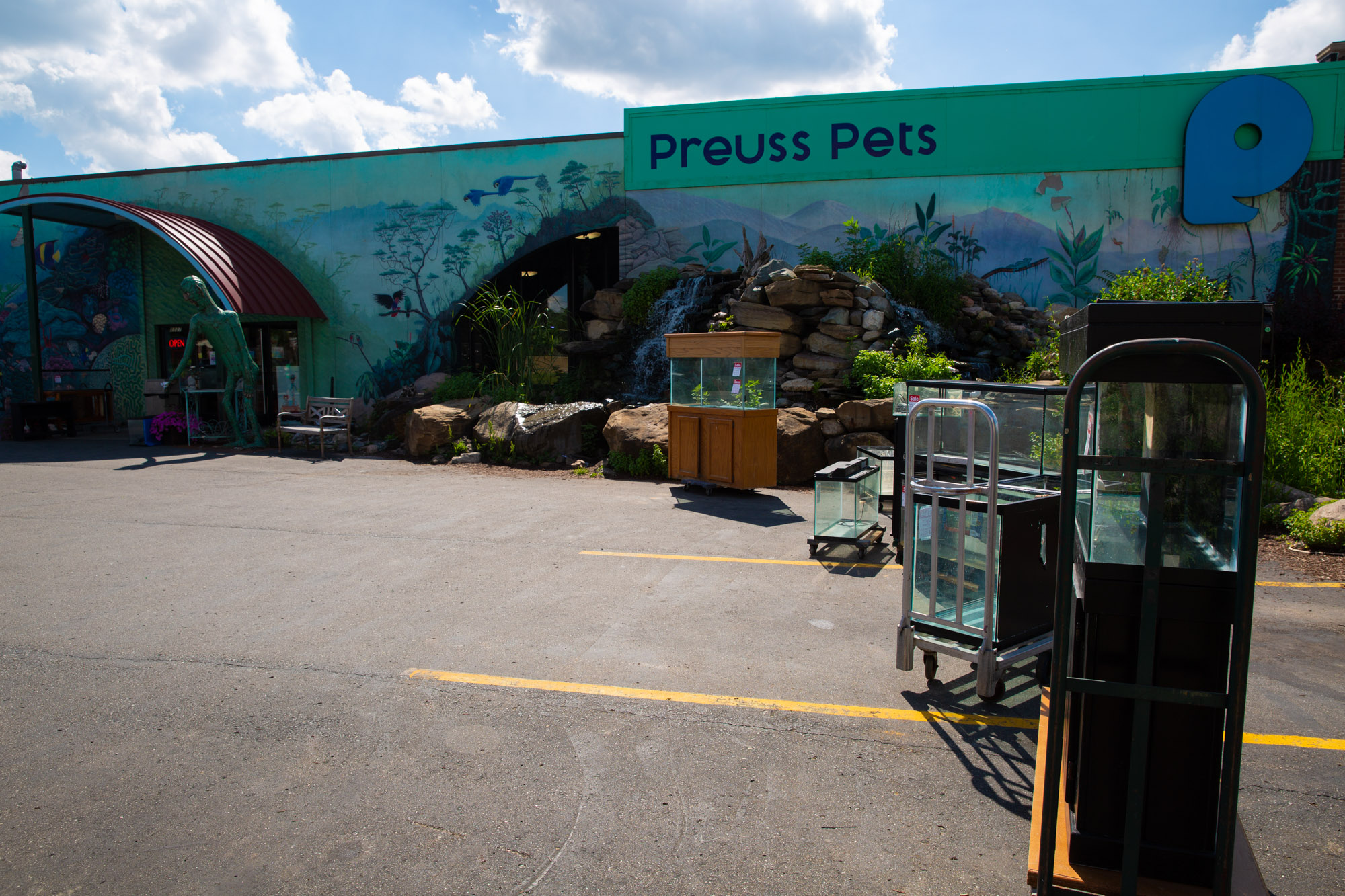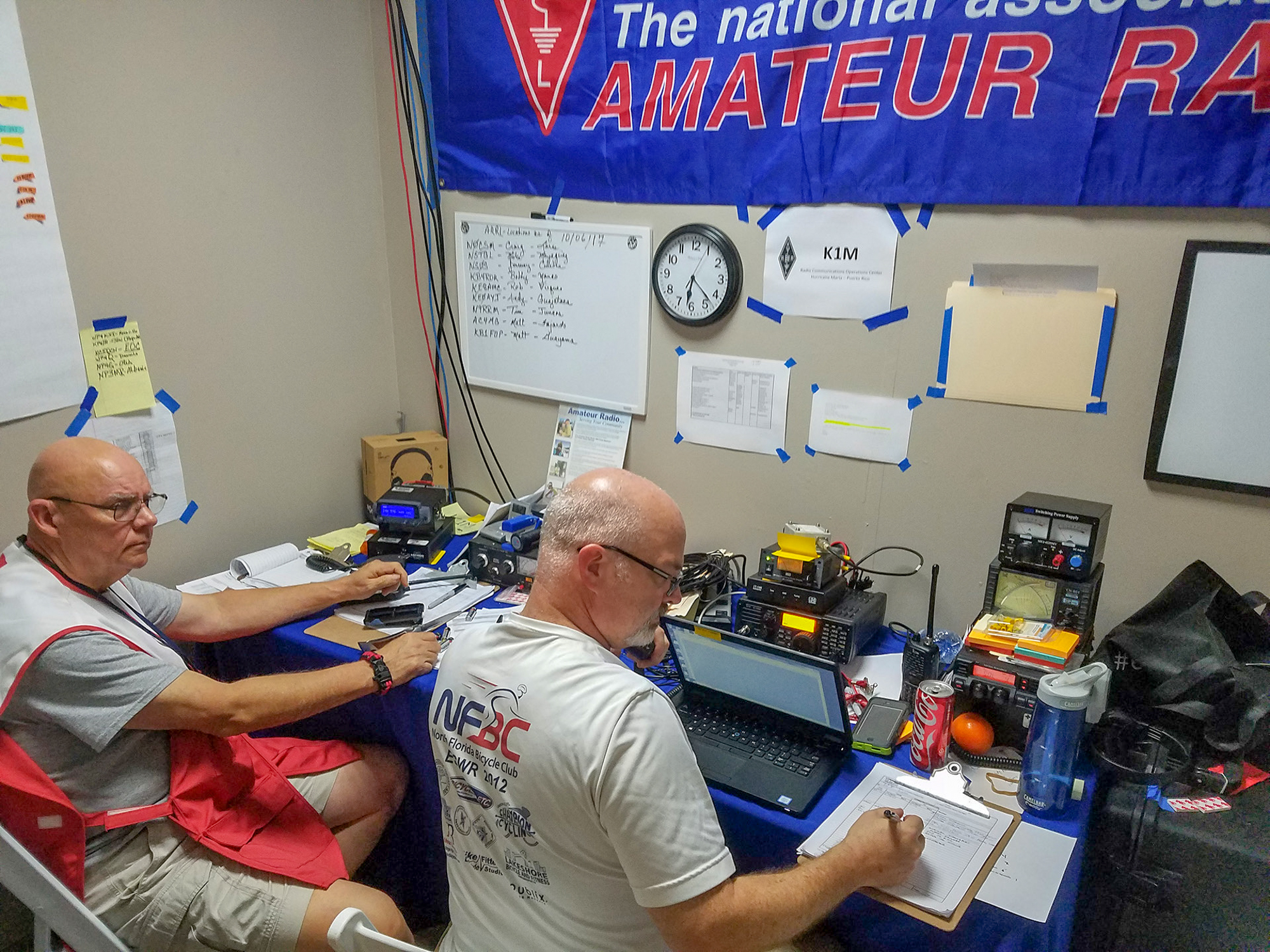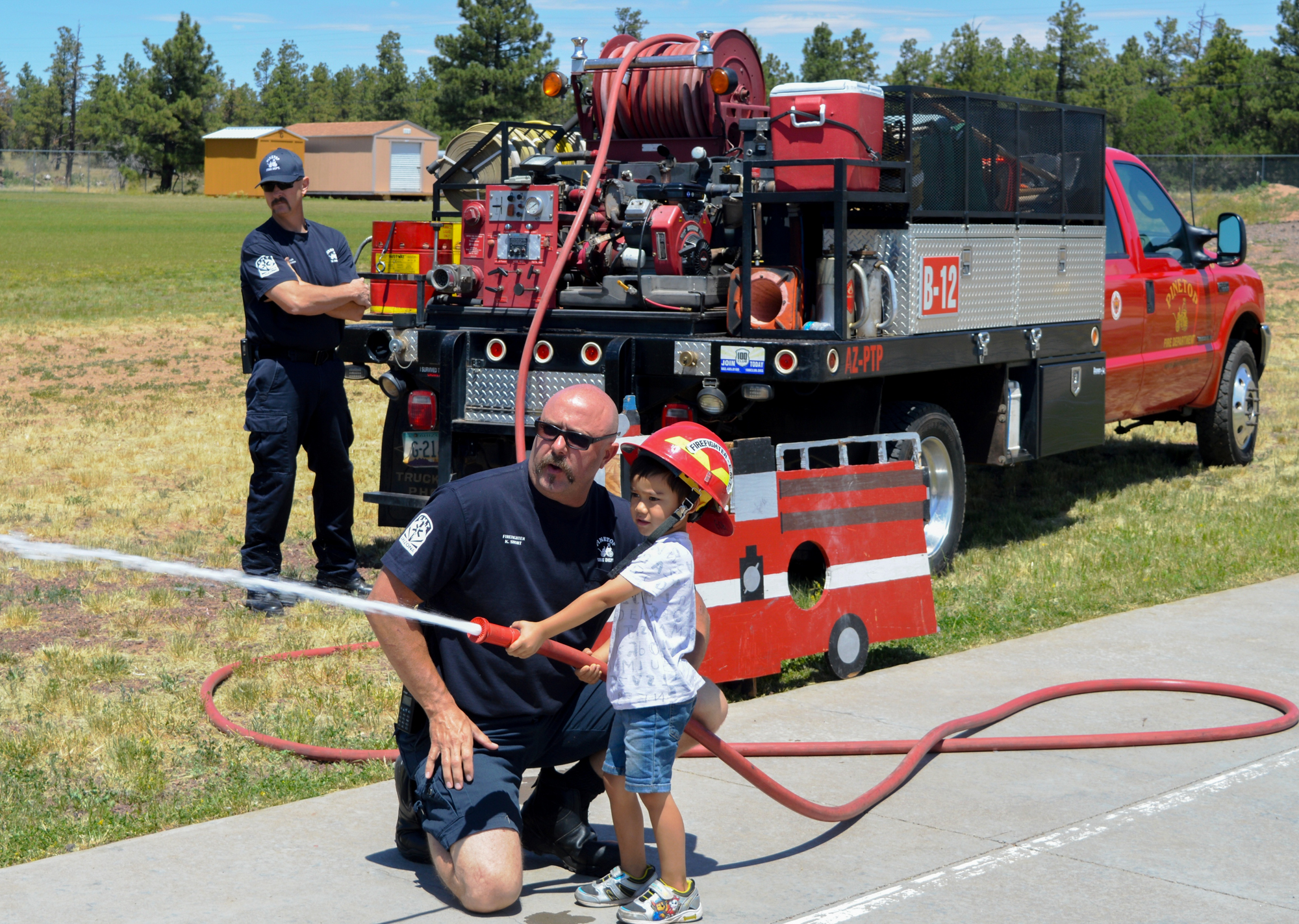LANSING, Mich. — He’s been living in pet shops his entire life, including the one he owns now. Preuss Pets, which Rick Preuss opened in 2006, is a landmark of Lansing’s Old Town neighborhood.
But ask Preuss what his favorite animal in his pet shop is, and his answer might surprise you.
“My favorite animal are humans,” Preuss said. “Honestly, if you can’t figure out how to love and care and be compassionate toward humans, you don’t really have a chance with animals.”

Preuss gets to express that love and care every day in his one-of-a-kind animal emporium, with all 25,000 square feet being used in one way or another. Preuss Pets has a quarantine room for animals that arrive there, a breeding room for both fish and birds, a classroom for demonstrations, a school bus and a massive showroom with a mixture of just about everything — birds, reptiles, and hundreds of fish tanks.
On the night of Dec. 22, 2013, an ice storm hammered Michigan’s capital city. The storm’s more than six inches of ice not only knocked out power for more than a week for a significant chunk of the Lansing community, but it also turned Preuss Pets into a shelter.
For Steve Oberg, aquatics manager at Preuss Pets, his family didn’t get power back for nearly two weeks, giving his kids a Christmas unlike any other.
“I distinctly remember the kids opening up Christmas presents at home, under flashlight, at like 5 in the morning,” Oberg said.
But thanks to what Preuss called, “the grace of God,” Preuss Pets was one of the few places in town that didn’t lose power from “the storm of all storms.”
“It was hard for anybody to be prepared enough for that,” Preuss said. “We could have been not helping others but doing everything just to help ourselves at that time, if it hadn’t been for just a bit of luck or coincidence.”
Part of the luck for Preuss was the timing of the storm. Pet shops that sell fish typically don’t get new fish around the Christmas holiday, meaning the dozens of fish tanks in the shop’s quarantine room were empty. When you add the used fish tanks they sell, Preuss Pets had at least 50 fish tanks available and ready to be used.
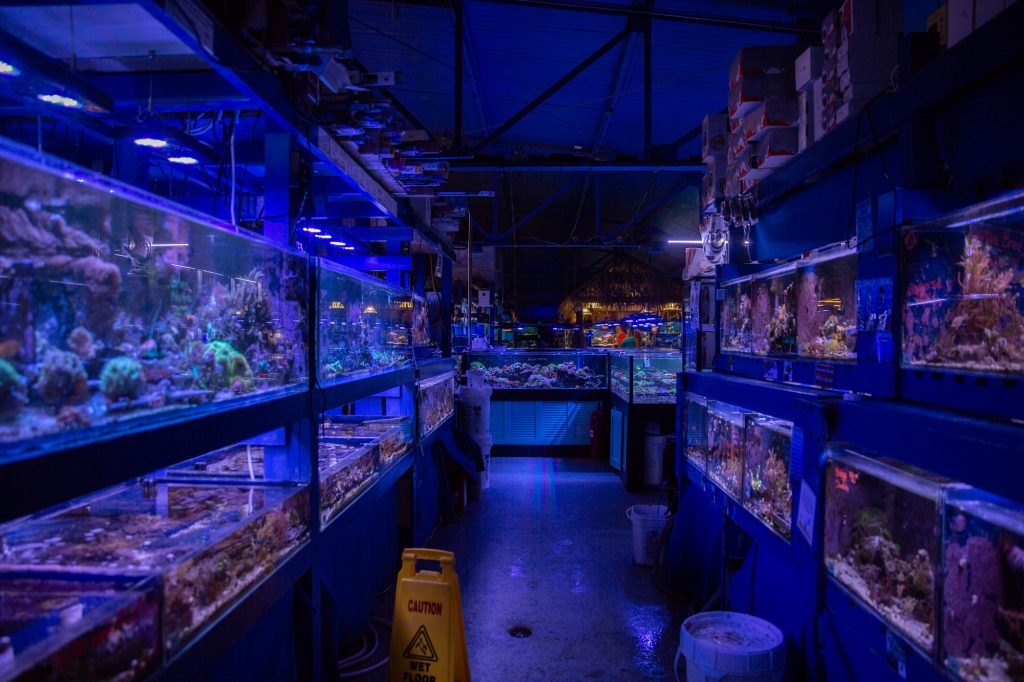
And that was a good thing, because every one of them was needed. Fish are particularly impacted by power outages, as most aquariums need power to maintain proper water temperature, oxygen levels and filter systems. But the confluence of timing left Preuss Pets prepared to fill every tank with fish seeking refuge.
“We set up all these extra tanks to put people’s fish in, and we age water and filters. Doing some of these things that would [be] very difficult without that,” Oberg said. “It was fairly easy for us to set up that sort of temporary hospital, but it wouldn’t normally be very easy to do.”
Some of the fish that dozens of people brought to Preuss Pets actually stayed for more than a month, allowing owners to make sure their lives were back in order before coming back for their fish. But a constant cycle of fish coming in and out of the store fit right in with the way the store operates daily.
“We run this store every day with a sense of chaos, because there is so much that happens,” Preuss said. “It was mainly trying to plug those animals into that routine.”
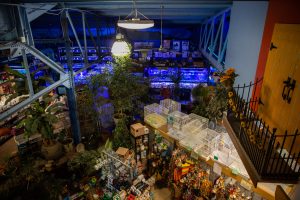
While some people would struggle deciding if they would welcome strangers into their home — or, in this case, strange fish into his store — Preuss said it wasn’t a decision at all.
“It’s a reflex … I mean, what is my option? I don’t even see an option. How could you say, ‘No, we can’t?’” Preuss said. “You’ve got to open the doors. In those situations, we always got to pull together.”
Preuss grew up in pet shops thanks to his mother’s fascination with them, helping her run various shops since he was 9. From those experiences, he admits that there is an element of a “bubble” to the pet shop world — where everyone can get along and “geek out” over the animals. But in his eyes, there’s no other way he’d rather be.
“What we’ve created in this store, we’re allowed to feel naturally that these are really cool things,” Preuss said. “We can create these things for people and the people kind of rally around us, and we create this collective energy and everybody’s loving it.
“It’s hard to get outside of that bubble and be in the midst of a cold world. It’s just not natural to us. So yeah, maybe there is a certain degree of optimism and faith and hope that this is just the way it is, and when you go outside that bubble, you realize that it’s not. But it can be.”
And the Lansing community has embraced that, too. Preuss speaks at nearby Michigan State University classes every year, and is even featured as the Waldo in a Lansing-specific “Where’s Waldo?” map. The environment they’ve created at Preuss Pets allows for people to feel like it’s a place they can call home.
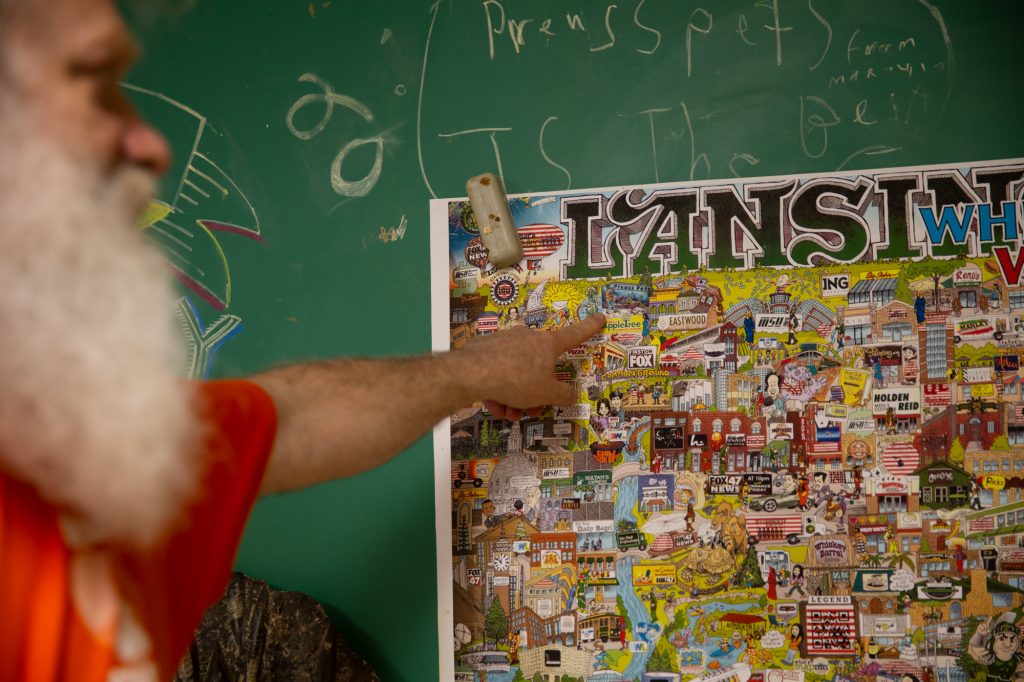
“There’s people that will come in that need us,” Preuss said. “Some show up every day, some show up every week, some show up every month, but we’re part of that routine. And you can see that it means something to them.”
But that chaotic routine also means something for the people at the Preuss Pets, too, especially when the community needed it most.
For aquatics manager Oberg, what they were able to do for Lansing not only had a major impact in the reaction to the 2013 ice storm, but has also left a lasting legacy at the pet shop.
“That event not only showed us what we can do for the community, but it also showed us what we needed to have for a facility here to protect our investments, our resources and the fish that we’re responsible for,” Oberg said.
And for Preuss, the moment that still sticks with him more than five years later is the chance to see the impact that saving a fish had on a young girl and her family, and see the purity of why humans are his favorite animals.
“We saved their piranha, and this little 5-year-old was practically weeping in tears and jumping for joy and excited that their piranha was still alive,” Preuss said. “And it’s like, ‘Wow.’ You don’t know how you touch people in that way. Seeing different people and how they were able to reunite with those animals? That’s what made it all worthwhile.”
Alex Simon is a master’s student at Arizona State University’s Walter Cronkite School of Journalism and Mass Communication. Born in the San Francisco Bay Area, Simon attended Elon University in North Carolina and received a bachelor’s degree in broadcast journalism. During his time there, he was the sports editor of the Elon News Network, the student news publication on campus. Simon has also worked as a writer for MLB.com, Baseball America, High Post Hoops and the Burlington (N.C.) Times-News. View his work here.
